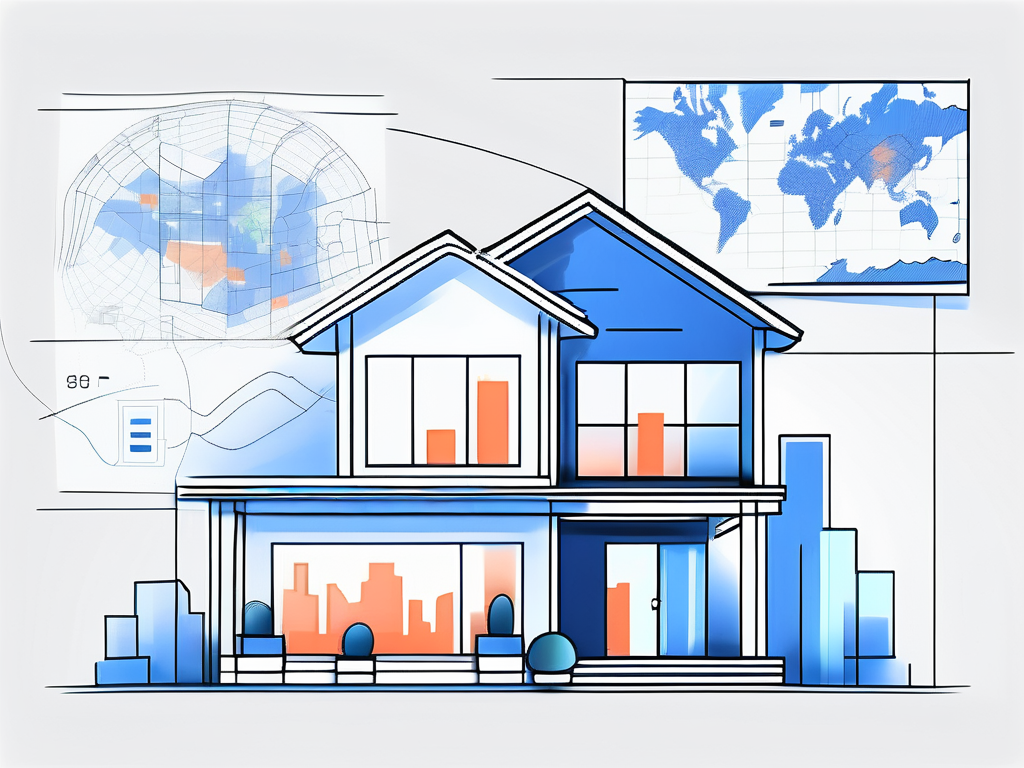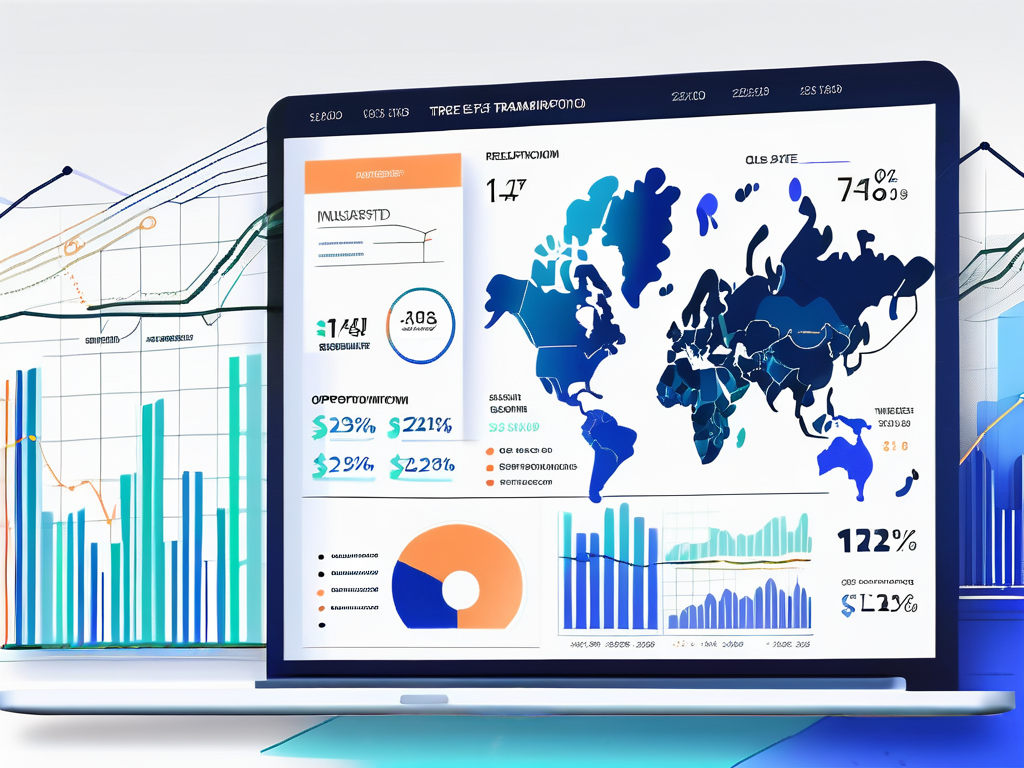Digital Transformation in Home Sales: Anticipating Zillow’s Evolution; Preparing for a Tech-Driven Market


In recent years, the real estate industry has undergone a massive transformation due to technological advancements and changing consumer behaviors. Digital transformation has become a buzzword in various sectors, and the home sales market is no exception. With companies like Zillow leading the way, it's crucial for real estate professionals to understand the nuances of this digital revolution and prepare for a future where technology plays a pivotal role in home sales.
Understanding Digital Transformation in Home Sales
The concept of digital transformation refers to the integration of technology into all aspects of a business, fundamentally changing how it operates and delivers value to its customers. In the context of home sales, digital transformation involves leveraging technology to streamline processes, enhance customer experiences, and drive efficiency in sales transactions.

Embracing digital transformation in the realm of home sales is not just about adopting new technologies; it's about reimagining the entire real estate experience. From the initial property search to the final closing, technology plays a pivotal role in shaping how buyers and sellers interact in the market. This shift towards digitalization has revolutionized the traditional real estate landscape, paving the way for innovative solutions and personalized services.
The Concept of Digital Transformation
Digital transformation in home sales encompasses various technologies and strategies, such as virtual tours, online listings, automated marketing, and data analytics. These tools enable real estate professionals to reach a wider audience, showcase properties more effectively, and gain insights into customer preferences and market trends.
Virtual tours, for example, offer prospective buyers a 360-degree view of a property without physically visiting it, saving time and resources for both buyers and sellers. Online listings provide a platform for detailed property information, high-quality images, and even virtual staging, creating a compelling showcase for potential buyers. Automated marketing tools help real estate agents target specific demographics with tailored content, increasing the chances of connecting with interested buyers. Data analytics allow professionals to track market trends, analyze consumer behavior, and make informed decisions based on real-time insights.
Impact of Digital Transformation on Real Estate
The impact of digital transformation in the real estate industry has been substantial. Homebuyers now have access to vast amounts of information at their fingertips, allowing them to research properties, compare prices, and even complete transactions online. Sellers can leverage digital platforms to showcase their properties to a global market, increasing their chances of finding the right buyer quickly.
Furthermore, digital transformation has not only streamlined the home sales process but has also enhanced transparency and efficiency in transactions. With online tools for document signing, secure payment gateways, and virtual communication channels, the buying and selling of properties have become more convenient and secure. Real estate professionals can now provide personalized services to clients, anticipate market trends, and adapt to changing consumer preferences with agility, thanks to the power of digital transformation.
The Role of Zillow in the Digital Real Estate Market
Zillow, the online real estate marketplace, has played a significant role in catalyzing the digital transformation of the home sales market. With its vast database of property listings and advanced search functionalities, Zillow has become a go-to platform for buyers and sellers alike.
Moreover, Zillow's influence extends beyond just property listings. The platform also offers valuable insights into market trends, neighborhood demographics, and school information, empowering users to make informed decisions when buying or selling a home. By providing a comprehensive range of data and tools, Zillow has revolutionized the way people approach real estate transactions.
Zillow's Current Position in the Market
As of now, Zillow operates as an online marketplace connecting buyers, sellers, and real estate agents. The platform offers various features, such as property listings, estimated property values, mortgage calculators, and virtual tours. Zillow has become an integral part of the home buying process for many consumers, providing them with easy access to information and an intuitive user experience.
Furthermore, Zillow's user-friendly interface and mobile app have made it convenient for users to access real-time property information on the go. The platform's integration with social media channels also allows for seamless sharing of listings, expanding the reach of properties to a wider audience. With its continuous updates and enhancements, Zillow remains at the forefront of innovation in the digital real estate space.
Predicting Zillow's Future Developments
As technology continues to evolve, it is essential to anticipate Zillow's future developments and the potential impact on the home sales market. One emerging trend is the integration of artificial intelligence (AI) and machine learning (ML) in Zillow's algorithms, allowing for more accurate property valuations and personalized recommendations based on user preferences.
Looking ahead, Zillow may explore virtual reality (VR) technology to offer immersive property tours, giving users a realistic sense of a home without physically visiting it. Additionally, the platform could delve into blockchain technology to streamline transactions and enhance security in real estate deals. By staying ahead of technological advancements, Zillow is poised to shape the future of the digital real estate market.
Preparing for a Tech-Driven Real Estate Market
To thrive in a tech-driven real estate market, professionals need to adapt to the changing landscape and acquire new skills that align with the demands of the digital era.

In today's rapidly evolving real estate industry, the integration of technology has become paramount for success. As advancements in artificial intelligence, virtual reality, and big data continue to reshape the market, real estate professionals must stay ahead of the curve by embracing these digital tools. By harnessing the power of technology, agents can streamline processes, enhance customer experiences, and gain a competitive edge in a crowded marketplace.
Necessary Skills for Navigating a Digital Market
Real estate professionals must invest in digital literacy, understanding how to leverage technology to effectively market properties, engage with clients, and manage transactions. Additionally, skills in data analysis and interpretation will become increasingly valuable as real estate becomes more data-driven.
Furthermore, proficiency in cybersecurity measures is essential to safeguard sensitive client information and protect against potential cyber threats. With the increasing reliance on digital platforms for property transactions, ensuring the security and privacy of data has become a top priority for industry professionals.
Adapting Business Models for Digital Success
Traditional business models in the real estate industry are likely to face challenges in the digital era. Professionals must be open to adopting new technologies, exploring innovative marketing strategies, and providing seamless online experiences to stay competitive. This may include investing in virtual reality (VR) technology for immersive property tours or utilizing social media platforms to reach a wider audience.
Moreover, the shift towards a more virtual business environment necessitates a reevaluation of traditional networking practices. Real estate professionals must adapt to digital networking platforms, such as LinkedIn and real estate-specific online communities, to expand their reach, build valuable connections, and stay informed about industry trends. By embracing digital networking opportunities, agents can cultivate a strong online presence and establish themselves as industry thought leaders.
Challenges and Opportunities in a Digital Real Estate Market
The digital transformation of the home sales market brings both opportunities and challenges for industry professionals.

As technology continues to revolutionize the real estate industry, professionals are faced with the task of adapting to a rapidly changing landscape. From virtual property tours to online contract signings, the digital shift has reshaped how transactions are conducted in the market. This evolution not only requires professionals to stay updated on the latest technological advancements but also demands a shift in traditional practices to align with the digital age.
Potential Risks in a Tech-Driven Market
Increased reliance on technology leaves room for cybersecurity threats, fraud, and data breaches. Professionals must prioritize data privacy and employ robust security measures to protect clients' information and maintain trust in the digital marketplace.
Moreover, the fast-paced nature of technological advancements means that professionals must constantly stay vigilant and adapt to new security protocols to stay ahead of cyber threats. The interconnected nature of digital platforms also poses a challenge, as a breach in one system could potentially compromise an entire network of information, emphasizing the critical importance of implementing stringent cybersecurity measures.
Benefits of Embracing Digital Transformation in Real Estate
Despite the risks, embracing digital transformation offers numerous benefits to real estate professionals. Enhanced productivity, expanded market reach, improved customer experiences, and data-driven insights are just a few of the advantages that come with leveraging technology in the home sales process.
By harnessing the power of data analytics, real estate professionals can gain valuable insights into market trends, customer preferences, and investment opportunities. This data-driven approach not only streamlines decision-making processes but also enables professionals to offer personalized services tailored to the unique needs of each client. Additionally, the adoption of digital tools and platforms allows for seamless communication and collaboration among stakeholders, fostering greater efficiency and transparency throughout the real estate transaction process.
Conclusion: The Future of Home Sales in a Digital World
As the digital transformation of the home sales market continues, real estate professionals must adapt to evolving technologies and consumer preferences to stay relevant and thrive in this new era.
Key Takeaways for Real Estate Professionals
1. Invest in digital literacy and acquire skills in data analysis to navigate the digital market effectively.2. Embrace technology tools such as virtual tours, online listings, and data analytics to enhance the home sales experience.3. Anticipate future developments in platforms like Zillow, keeping an eye on emerging trends such as AI and ML integration.4. Adapt business models to provide seamless online experiences and leverage innovative marketing strategies to stand out in a competitive market.
Final Thoughts on the Evolution of Digital Home Sales
In this age of digital transformation, the real estate industry must embrace technology to meet the changing needs and expectations of home buyers and sellers. With Zillow serving as a prime example of the digital revolution in home sales, real estate professionals who understand and adapt to the challenges and opportunities brought forth by this tech-driven market are better positioned for success. By leveraging technology, acquiring new skills, and staying ahead of emerging trends, professionals can navigate the digital real estate market and thrive in an ever-evolving industry.
Empower Your Home Sale with SmartSellersMatch.com
As we embrace the digital era of home sales, it's essential to equip yourself with the right tools and knowledge for success. SmartSellersMatch.com is dedicated to guiding you through the complexities of selling your home online. Our comprehensive FSBO courses, available for free and as a paid option, provide you with a consolidated library of essential documents and access to our innovative FSBO Assistant. This automated chatbot is designed to assist with listing descriptions, home price estimates, cost breakdowns, and any questions you may have about selling in your area. Don't miss this opportunity to enhance your selling experience. Take the free FSBO Course today and step confidently into the future of home sales.





